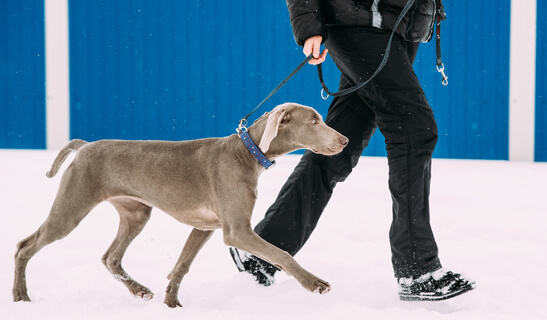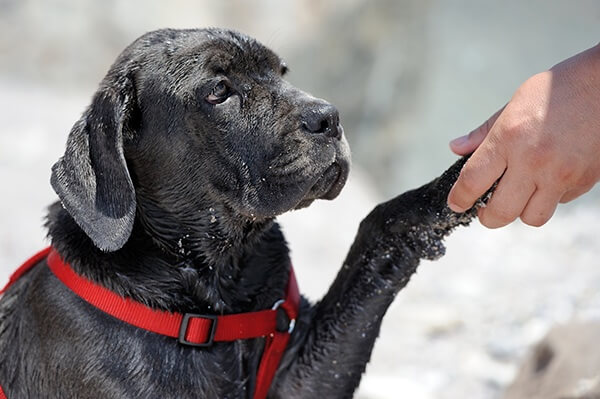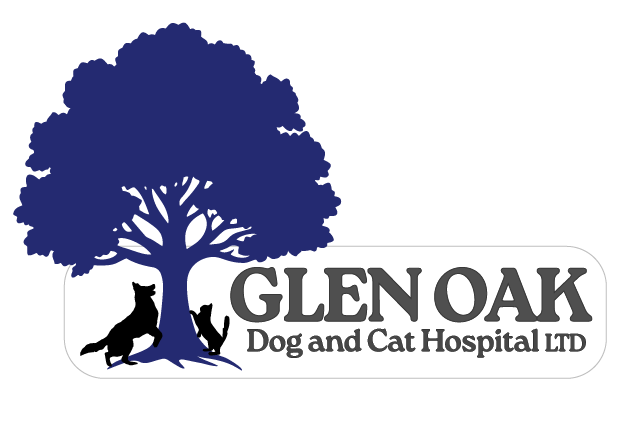
Winter brings snow and snow means the streets and sidewalks are filled with salt and de-icers. The cold and snow can have a harsh effect on your dog’s paws. Beyond just the nature of the season, there are other harmful factors that should be considered.
The most common hazards to your dog’s paws during the winter are:
- Toxic chemical de-icers. Typical commercial de-icers include Sodium Chloride (salt), Potassium Chloride, and Magnesium Chloride. Out of these de-icers containing chloride, Magnesium Chloride is often considered somewhat gentler on your dogs paws and better for concrete, however all are considered toxic if enough is ingested by your pet.
- Salt used to melt snow and ice can be hard on a dog’s pads and can also burn or irritate if the pad surface is cracked and exposed.
- Snow covers sharp objects that might lie just beneath such as broken glass, metal refuse with sharp corners and also stray nails and tacks.

Protect Those Paws
Foot“Paw”wear
Fitted shoes or booties made for dogs are specifically designed to protect and keep your dog’s paws warm. They also keep the harmful irritating agents at bay too. Not all dogs enjoy wearing them, however, so you may have to introduce them gradually. Start with short durations at first and gradually increase the length that they are able to tolerate wearing them.
Wash and Dry
After you return from a walk where your dog may have walked over areas containing a de-icing agent, wash their paws with warm water and dry them. This will prevent them from licking and ingesting any unwanted residual chemicals. If your dog has long fur between their pads, you can trim the hairs shorter so they are less apt to collect less excess salt or chemical residue.
Balms
If you find your dogs paws are becoming dry, cracked or have abrasions, ask your veterinarian to recommend a suitable non-toxic balm that will protect and moisturize.
Toxicity
De-Icers
It’s worth reiterating that any of the de-icers can make your dog sick if they ingest the substances. If you notice your dog is acting abnormally and you think they may have ingested a de-icer contact your local veterinarian immediately. Symptoms may include:
- Excessive thirst and increased urination
- Change in gait
- Confusion or disorientation
- Fluid build-up
- Muscle spasms
- Vomiting
- Weakness
Antifreeze (Ethelyn Glycol)
While not used as a snow melting agent, winter months often see the increase of antifreeze use in pipes and vehicles. Antifreeze is dangerous because it can appear to taste sweet and therefore is a risk to animals who may eat it indiscriminately and ingest the Ethelyn Glycol it contains.
Your pet can encounter a large enough spill, or walk over a puddle and later lick their paws and ingest the substance.
The symptoms of Ethelyn Glycol poisoning can present as similar to Chloride poisoning and may include, dizziness, diarrhea, and even seizures. Ethelyn Glycol poisoining should be dealt with immediately. This link to a dedicated article on antifreeze poisoning explains the symptoms and treatments in greater detail.

